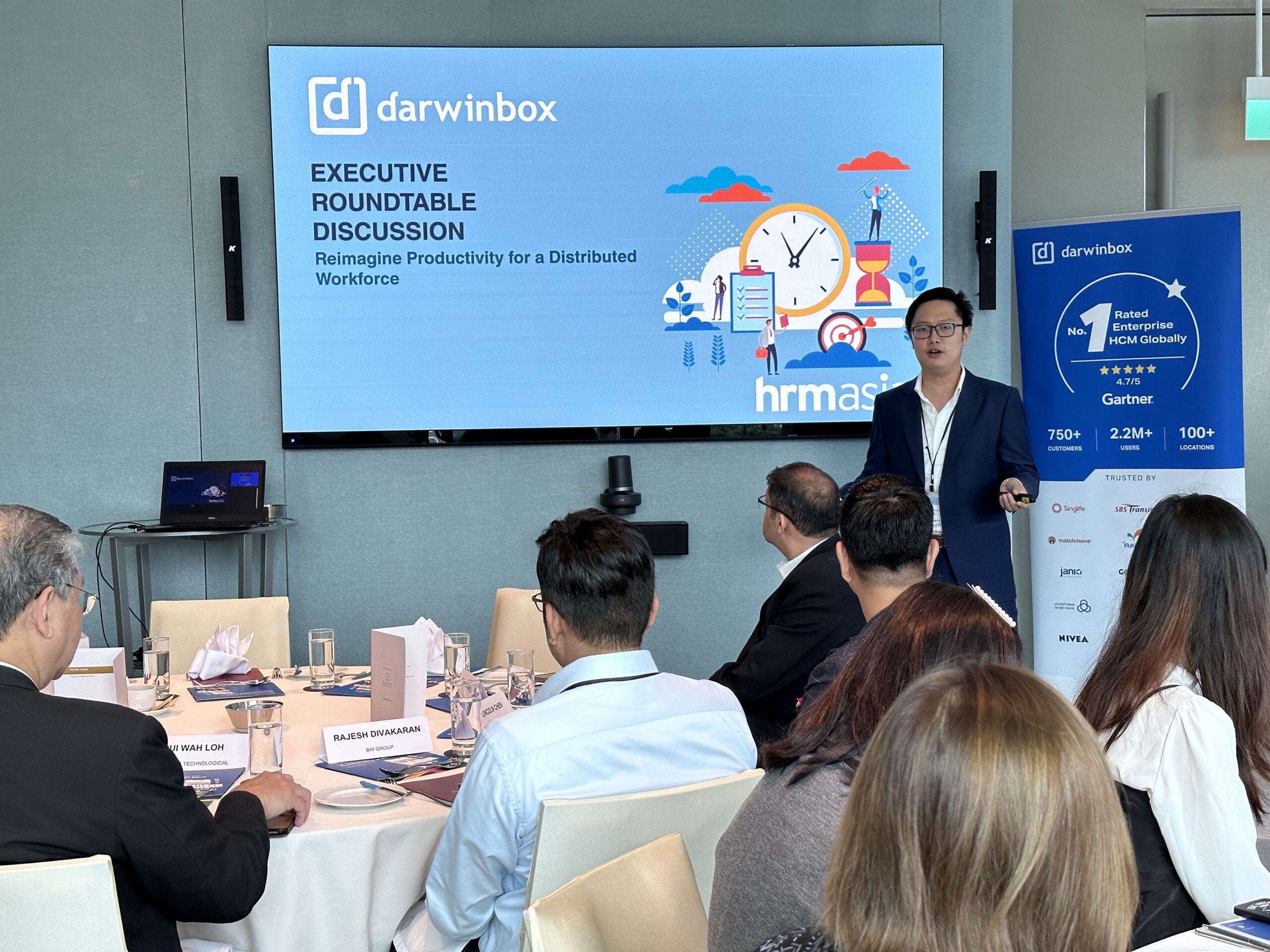Developing successful talent strategies in a distributed work era

In a world where remote and flexible working has become the new norm, organisations are grappling with the complexities of workforce management, including building a more productive and engaged workforce.
HRM Asia, in partnership with Darwinbox, recently hosted an HR Luncheon and Roundtable titled Reimagined Productivity for a Distributed Workforce, which gathered HR leaders to delve into talent strategies and share insights on optimising workforce performance.
Acknowledging the shift from traditional office-based work to a more flexible, location-agnostic model. Eric Heung, Regional Sales Director of Darwinbox, set the stage by emphasising the changing landscape of HR. He noted that today’s workforce is no longer confined to a single location, and employees often collaborate in squads and project teams. This shift, he added, necessitates a new approach to HR practices.
A thought-provoking question posed by Heung was, “If you had the power to enact changes in HR, what would you alter?”, and the responses from HR leaders reflected common themes. For instance, Tan Li Lian, Group CHRO of City Development Limited (CDL), expressed a desire for HR to have a more prominent presence on the board of directors, underscoring the importance of HR professionals in bringing the voices of the people to the board level.
Loh Pui Wah, Director, Career and Attachment Office, Nanyang Technological University (NTU), added, “I send out 8,000 graduates into the workforce, and my aspiration is for each of them to possess a perspective and mindset focused on human development. Regardless of their future roles, whether as CFOs, COOs, or any other position, I want them to understand that it’s the humans behind the machines they’ll be working with who are the driving force for meaningful human development.”
During the discussion, HR leaders addressed the challenges of managing flexible scheduling, especially for blue-collar employees. Lincoln Chen, Senior Director of HR at Hoya Corporation, shared a practical dimension to the discussion, particularly regarding flexible scheduling for blue-collar employees. “There will always be a divide,” he explained, “between office employees who have flexibility and those in production who don’t.” He further stressed the importance of supervisors’ discretion in managing this balance between operational requirements and employee preferences.
Nadeem Ashraf, Lead, HR Business Partnering at Mediacorp, offered insights from the media industry, where specific roles like cameraman and sound technicians require physical presence. He highlighted the significance of implementing shift-based programmes to grant employees greater work flexibility and echoed Chen’s emphasis on supervisors exercising discretion in managing these adaptable schedules.
Darwinbox’s Heung brought to light four pivotal macrotrends that captured the audience’s attention. The first trend delved into the intriguing challenge of productivity, where it seemed that employees were either plateauing or even declining in their contributions, be it from a revenue or production perspective, he observed.
The second trend underscored escalating employee expectations, highlighting that employees were increasingly seeking more from their roles and organisations. He said, “Employees are seeking more fulfilment from their jobs. Consequently, expectations are on the rise, even though, when looking at the numbers, employee contributions to organisations appear to be stagnating.”
The third trend addressed the growing complexity organisations faced in their quest to find, retain, and nurture talent. It shed light on the intensifying competition for skilled professionals, making talent management a pressing concern for many.
Lastly, the fourth trend delved into the pervasive adoption and use of AI technology within organisations. Heung noted the pace of this transformation, with discussions now encompassing advanced AI concepts such as generative AI and large language models. In addition, the discussion touched on the prospect of AI acting as a collaborative partner for HR teams rather than serving as a replacement. While this potential partnership was explored, he said many organisations are currently exploring how AI could facilitate inquiry management and derive valuable insights from vast datasets.
READ MORE: Creating a new way of working with Adaptable HR
“In a distributed workforce setup, where employees may not always know where to turn for answers, even simple inquiries like those concerning payslips can accumulate and lead to backlogs. Darwinbox offers a solution through its mobile accessibility, which facilitates the resolution of inquiries,” Heung said.
“Moreover, establishing empathetic touchpoints with employees within the organisation is crucial. Instead of conducting occasional annual or semi-annual performance feedback sessions, organisations should consider implementing a continuous listening programme. This approach involves consistently seeking feedback from employees at various milestones and touchpoints. Additionally, some participants have mentioned the significance of rewards and recognition programmes, which align with Darwinbox’s core values and objectives,” he concluded.



